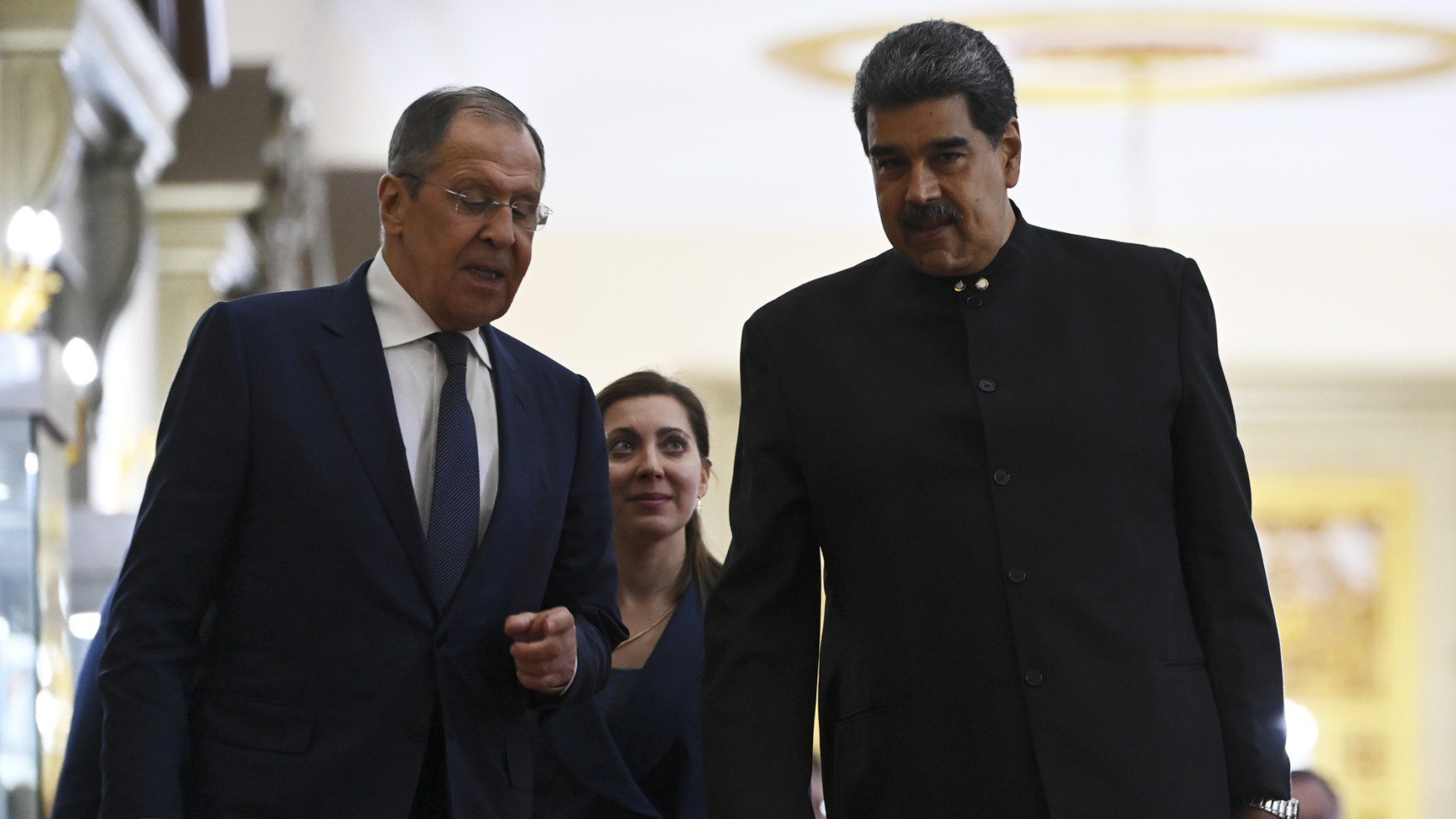
Russian Foreign Minister Sergei Lavrov (L) and Venezuelan President Nicolas Maduro (R) chat as they leave the Miraflores Presidential Palace after a meeting in Caracas on April 18, 2023. Russian Foreign Minister Sergei Lavrov called Tuesday for like-minded countries to “join forces” against Western sanctions “blackmail”, as the longtime diplomat continued his tour of Latin America.
Photo: YURI CORTEZ / AFP
While on a diplomatic tour in Latin America, Russian Foreign Minister Sergei Lavrov has called for nations friendly toward Russia to “unite” in order to counter “blackmail” coming from the West.
“It is necessary to unite our forces to counter the attempts of blackmail and illegal unilateral pressure of the West,” the Russian foreign minister urged at a Tuesday, April 18th press conference in Caracas with Venezuelan counterpart Yvan Gil, referring to those who consider themselves part of the “multipolar world.”
Having visited Brazil on Monday, Lavrov made Venezuela the second leg of his tour on the continent, with visits to Cuba and Nicaragua to follow.
Lavrov’s itinerary is not accidental, since these countries are known to either vote against anti-Russian resolutions in the UN General Assembly or to abstain. These nations, together with Venezuela, had chosen “their own path,” he went on to say.
While Moscow is expanding its trade and economic ties in Latin America, its proposed vision—with China’s backing—of the coming multipolar era is also gaining traction there, with Brazil’s Lula being most receptive.
Regional governments amenable to the multipolarity idea have, as a result, fallen foul of their immediate neighbor, the U.S.
Towards Venezuela, the U.S. (and other Western powers) is particularly hostile, having employed heavy economic sanctions in an attempt to effect regime change there—a situation which Russia has turned to its advantage.
Through Russian support, Venezuelan president Nicolás Maduro has managed to largely circumvent these sanctions, holding onto power.
On the matter, Lavrov said Russia fully supported the position of its “Venezuelan friends.” That support, he continued, would go towards making Venezuela an economy “independent from the pressures of the U.S. and other Western actors.”
An important element in this plan would be the development of an alternative to SWIFT, the system that enables global financial transactions. Following the start of the war in Ukraine last year, Russian banks were locked out of making use of its services, forcing it to switch to SPFS, SWIFT’s Russian equivalent, which has been under development and expansion by the Central Bank of Russia since 2014.
Besides this, Russian and Venezuelan officials reviewed hundreds of bilateral agreements covering the financial, energy, agricultural, and other sectors. After their talks, Lavrov formally invited his Venezuelan counterpart to visit Russia “at a time he deems convenient.”
Venezuela, which was already a key ally of Russia under former president Hugo Chavez (1999-2013), has repeatedly expressed its support for Russia, as it refused to condemn Moscow’s war in Ukraine.
Addressing that issue, the Russian minister assured Russia would “solve the situation” there as well as others throughout the world, in line with the UN Charter. “Our task is to ensure that the UN Charter is implemented in its entirety and that the right to self-determination is not taken away whenever it suits the West,” he added.
